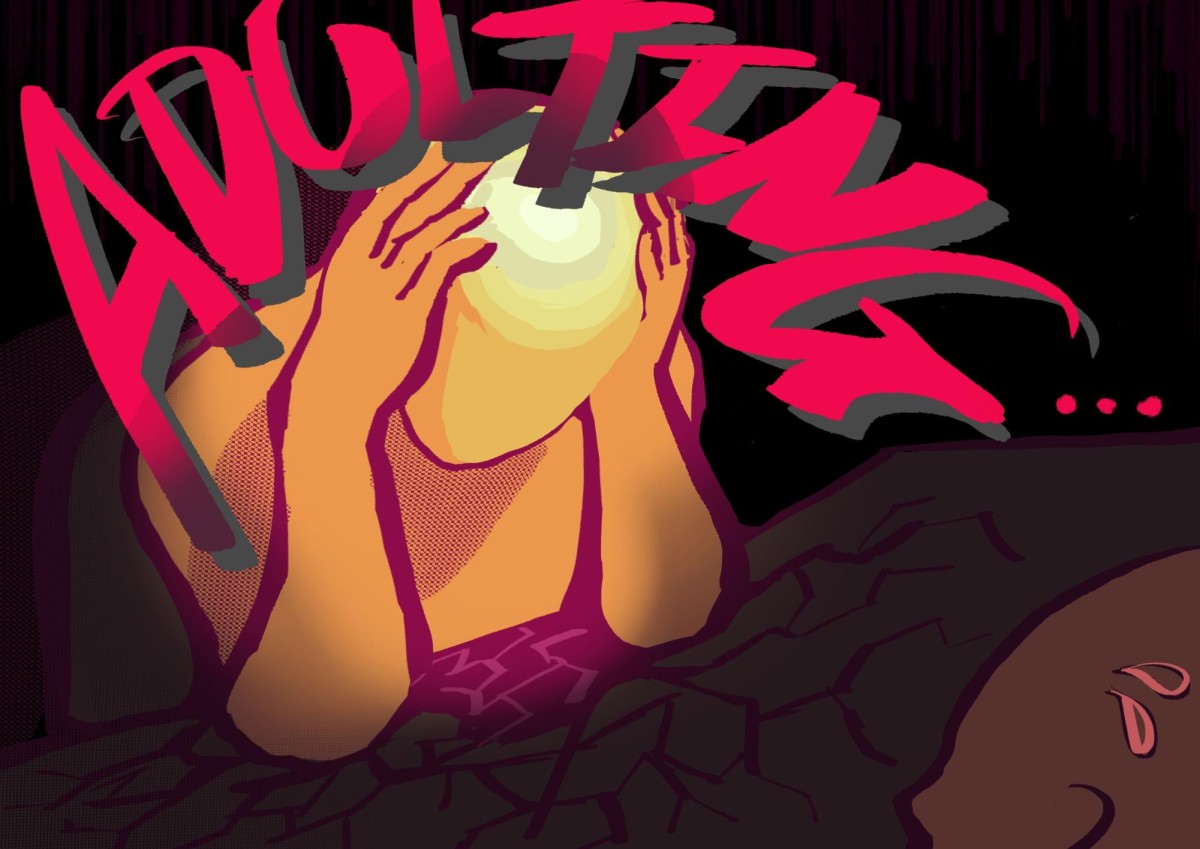It happened in a dimly-lit cafe in Brooklyn. No more than 10 minutes into a consulting meeting for pre-law advice with a professor, I began oversharing my anxieties about the impending challenges of adulting.
During this meeting, I recognized that my transition into adulthood is closely tied to my identity as a Taiwanese international student at NYU. As I am learning about myself and how to live on my own, the pressure of getting a job and the discouraging visa sponsorship process looms over me. It can sometimes feel like I can’t fully experience coming into adulthood, or learn to balance working hard and playing hard, simply because there’s a time limit on my student visa.
For international students, stability is tied to our visa status. International students in the United States need to be sponsored by their employers to gain a work visa, which works against us in the hiring process. Receiving an H-1B visa — a type of work visa typically granted to college graduates — is no easy task, and makes the already frustrating experience of looking for a job much more stressful.
This system leaves international students in a cutthroat race for job security, with many qualified students vying for limited spots. That’s not to say that domestic students don’t have to make sacrifices on their path towards adulthood, but it is undeniable that international students are forced to grow up faster. This can take away some of the joy of living in one of the most dynamic cities in the world during one of the most transformative periods of our lives.
The U.S. Citizenship and Immigration Services has an annual cap of 65,000 H1-B visa applications it will accept, with an additional 20,000 for those with master’s degrees or higher. If companies submit more applications than this cap, all the applicants must go through a lottery system — and in 2024, only 14.6% of the total applicants were able to get their visas approved.
One way to improve your chances of finding employment is to take advantage of the government’s program for STEM students, which makes them eligible for a 24-month extension of their Optional Practical Training status — temporary employment that is directly related to an F-1 student’s main area of study. Hence, my Computer Science major selection.
But the more I learn about myself at NYU, the more certain I am of where my passion lies. If there was no visa involved, I’d probably be a Philosophy or English Literature major — and I’d write. During late nights of studying — and sometimes near mental breakdowns for a financially-promising major I actually have no passion for — I think about what I would be doing if money and security were no object. In my own unproductive brainstorming sessions, I’m cracking my brain on how to market myself as a tech intern and a law school applicant, when my heart leads me elsewhere.
My parents wanted me to be an engineer, specifically in the United States, because of the interdisciplinary nature of the higher education system here. Not only would I learn the technical skills of computer science, but I would also acquire a new perspective of American thinking, writing and philosophy.
My parents believed New York would be a good place to widen my “眼界,” or to broaden my horizons. Being here, I realized that it is. My father’s experience as an Electrical and Computer Engineering major never included much focus on liberal arts or humanities; those fields were generally written off as a waste of resources.
Coming from the education systems in Hsinchu, Taiwan and Shanghai, China, I’ve realized the extent of their narrow emphasis on lucrative studies such as medicine and engineering. The stacks of SAT practice tests on my desk back in Shanghai were not enjoyable, but — as my mother would tell me, they were a ticket to a life with more options..
NYU, and New York City in general, is composed of people from diverse backgrounds, with a variety of lifestyles and values. One of the most memorable aspects of these conversations I’ve had with my professors and my peers was about the difference in our priorities and what constitutes accomplishment. For many of them, doing what they love is more important than meeting societal expectations and status, but for me, it is the opposite.
What happens, then, when just when I’m figuring out who I am and what I like, I have to secure a job that I might not be passionate about? As I go through my degree and begin to really explore my passions, I face increasing pressure to get a work sponsorship or find alternatives like graduate school or moving somewhere else.
For all international students who dream of NYU’s promise of a dynamic, urban college experience, I would say moving to the city is worth the struggle as long as you’re aware of the requirements for remaining here. More importantly, I’d say that international students need to know that sometimes college in the United States can feel like a race for security — one that is not guaranteed to end in your favor.
Contact Katie Liao at [email protected].















































































































































